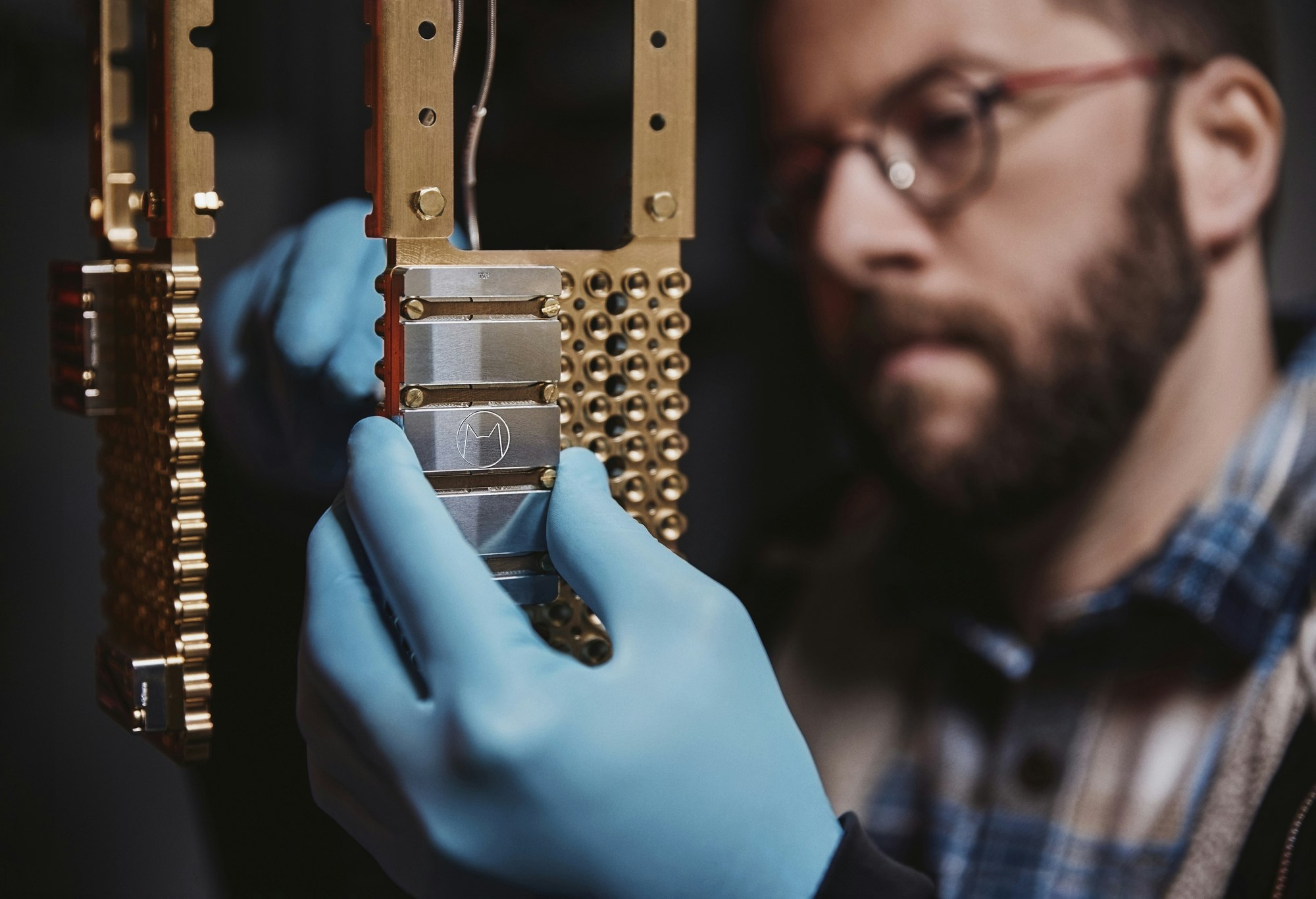French startup Quandela has raised a €50m Series B to manufacture photonic quantum computers and sell them to industrial customers.
It comes just a few weeks after the startup delivered its first device to French cloud provider OVHcloud, marking the first time that a European quantum computer was bought and hosted by a private company.
The funding round, which is a mix of equity and debt, was co-led by French VC Serena and Crédit Mutuel Innovation, as well as the European Innovation Council (EIC). They join returning investors Bpifrance, Omnes Capital and Quantonation.
Quantum particles of light
Quandela develops quantum computers that leverage particles of light, or photons, to make calculations. It is one approach among several others, which all aim to unlock the compute power of quantum particles, also known as qubits.
With enough qubits, it is expected that quantum computers could one day calculate problems that even supercomputers can’t handle.
Ascella, Quandela’s flagship quantum computer, has six qubits to date — not enough to carry out any meaningful computation, which would require hundreds of thousands of qubits.
In comparison, IBM — which uses electrons, or superconducting qubits — has released a 433-qubit processor and is planning to deliver a 1,121-qubit device by the end of the year.
PASQAL, a French startup that builds quantum computers with neutral atoms, currently offers 100 qubits and is aiming for 1,000 qubits in the medium term.
Quandela’s approach has its own advantages, however. Photons are more stable than other particles because they are less sensitive to the surrounding environment — and they are therefore easier to scale.
“In the long term and with regards to scalability, photons tick more boxes than others,” says Niccolo Somaschi, the cofounder of Quandela.
The challenge is to generate single photons that are high quality and efficient. To do so, Quandela has designed and built its own technology, a generator of photonic qubits, which sits inside its quantum computers.
“For us, the obstacle is not to increase the number of qubits immediately, but to increase the quality,” says Somaschi. “So we are focusing on optimising [the generator].”
“We have a roadmap, of course, but it is confidential.”
Manufacturing quantum computers
Industrial players are taking interest in Quandela’s photonic processors. Last month, the startup delivered its first quantum computer to one of OVHcloud’s datacentres. The two-qubit device will be used by the cloud provider to carry out internal research and development.
The quantum computer was the first to be produced in Quandela’s factory, near Paris, which was inaugurated earlier this year.
“This first delivery enabled us to develop an internal process for conceiving, manufacturing and testing an entire device in eight months,” says Somaschi. “Now we have the confidence, the capacity and a boost in our resources to increase our manufacturing capabilities.”
Three more devices are already under construction for delivery in 2024 to as-yet-undisclosed customers.
Developing quantum algorithms
Quandela also works with industrial clients to develop quantum algorithms that can serve specific use cases. For example, the startup has partnered with French energy company EDF to work on simulations of hydroelectric dam deformations, which are caused by the water pressure in the reservoir.
Quantum simulations of such complex systems could be faster, more accurate and less energy-intensive. But with a six-qubit device, no tangible results are expected in the near term.
“It’s not about finding an advantage with these six qubits, but about finding an advantage with this algorithm,” says Somaschi. “The key is to test and validate the algorithm today to know how much of an advantage we will get when the compute power grows.”
This is why many companies are testing the potential of several approaches to quantum computing at the same time. EDF, for instance, also works with PASQAL on material simulation problems.
Somaschi says that Quandela is now looking at opportunities to expand its customer base in Asia and North America, with discussions already underway to establish partnerships in South Korea.
The additional funding will also be used to double the size of the team by the end of next year, from its current number of around 80 people.


